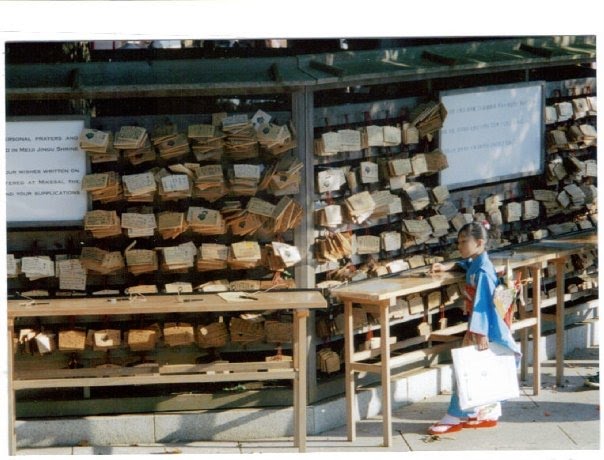Recently I read two very interesting articles in The Japan Times about what it’s like living as a foreigner in Japan. A person doesn’t have to live in Japan for long before learning to identify him or herself as a がいじん (gaijin or literally translated as “outsider”). That’s when the questions really start rising. How do you identify yourself? How do you feel about being viewed as an “outsider”? Have you experienced what it is like being in the minority before? What makes you unique, and in what ways do you reinforce stereotypes about people from your country? What do you want to hold on to in your existing identity, and what parts of a new culture do you want to embrace? Every person answers these questions differently.
The first article sought to show how three famous foreign men dealt with the challenges of living in Japan as outsiders. While they shared some interesting insights, I think the real problem arose in expecting three people to represent all foreigners living in Japan. Foreigners face unique adjustments, when moving to Japan, based on what similarities and differences exist between the Japanese culture and their own culture. For example, at different points in history, Japan and China or Japan and Korea have strongly resented one another. These politically based tensions may contribute to stereotypes or discrimination that other foreigners would not experience. Likewise, men and women would naturally respond in different ways to a new culture, yet this article focused only on interviewing men. I certainly do not agree with everything in this first article, but if you have the time, it is well worth it to see what insights and conclusions one could draw about foreigners living in Japan.
The second article was a series of comments people made as they agreed or disagreed with the first article. Many people feel passionate about what it means to be a がいじん because, as I pointed out, every person responds differently to those difficult identity questions. One idea that really stood out to me is the way people are so quick to judge other cultures, without examining their own culture through the same magnifying glass. For example, in America we see people who are labeled as terrorists based on where they were born or people getting paid next to nothing for doing demanding physical work that many people would try their noses up at. As we recently celebrated Martin Luther King, Jr. Day, can we honestly say that America is free of discrimination and that we are innocent of giving labels to identify others as outsiders? Another point that made me smile was the comment, “Too many foreign residents make themselves miserable with constant complaints. If I wanted everything to be as it was back home, I would have stayed there.” I admit that I have been guilty of complaining about cultural differences at times, but when all is said and done, I am thankful for my many opportunities to learn about the Japanese culture. As I meet and befriend people in Japan, I am also happy to point out that just like all foreigners have differences, Japanese people are unique in their own ways too. So, for anyone who seeks to experience a new culture, the best plan is to stay open-minded about the individuals you meet as well as about yourself as you grow and change (to varying degrees) in a new culture. To read the many responses and comments related to the first article, you can check out the second article at this link.

While reading this, I completely flashed back to my time overseas! As welcome as many of the french made me feel, I could still see the line for the "gaijin!" I frequently had discussions with people from several different cultures about all of our perspectives. It was interesting to discuss the social differences, and some of the "lesser" differences I would sometimes wonder about. When I said "ow" instead of "aie," there were some who would comment. The best part is making the acquaintance of great new people, and learning more about your culture through fresh eyes!
ReplyDelete